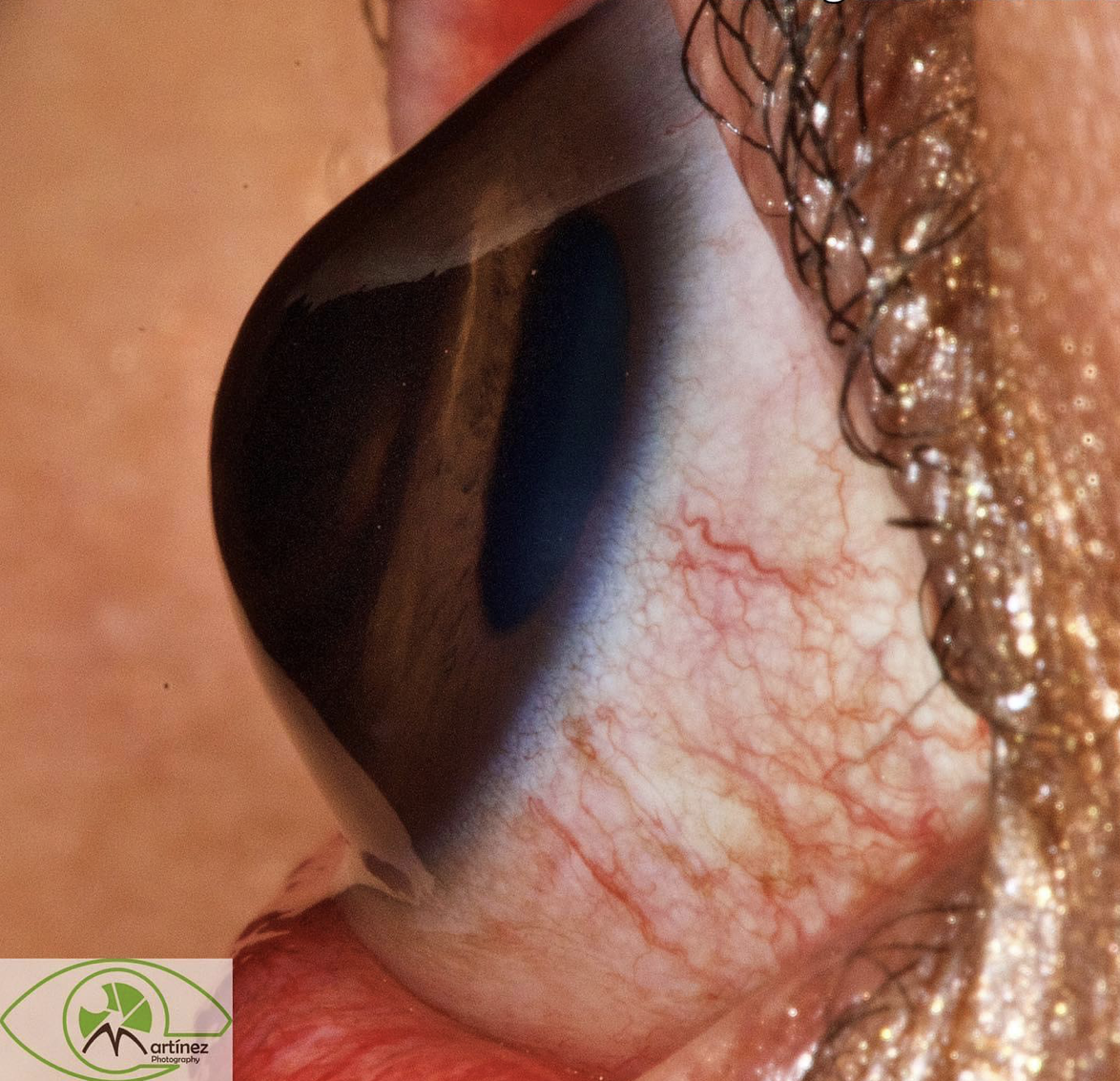 |
Femtosecond laser-assisted intracorneal concave lenticule implantation was shown to be an effective treatment for KCN. Photo: Irving Martínez Navé, OD. Click image to enlarge. |
Researchers recently reported that the keratoconus (KCN) procedure known as small-incision femtosecond laser-assisted intracorneal concave lenticule implantation (SFII) is effective at preventing progression due to its minimal invasiveness and ability to maintain steady corneal biometry.
In a recent prospective 11-patient study, the authors examined the morphological changes and biomechanical stability of the host cornea in patients with progressive KCN over a period of five years after SFII. They reported that all eyes achieved a stable condition during the follow-up period and showed an improvement in corrected distance visual acuity compared with the pre-op period. Anterior segment biological parameters such as anterior/posterior surface K1/K2, posterior elevation and anterior chamber depth also remained stable, with no significant changes after SFII. Evaluation on Corvis ST showed significantly greater central corneal thickness and stiffness in applanation at one week post-op vs. baseline, which remained stable after.
The authors also noted that the lenticule remained transparent during the post-op period. Edema and an increase in cell activation and reflectivity were observed at the lenticule-stromal interface during the first post-op week, but the authors reported that these reactions diminished within six months.
“Femtosecond laser-assisted lenticule implantation has already been used to correct hyperopia in humans and also provides a new surgical approach for the treatment of corneal ulcer,” the authors noted in their paper. “Our findings suggest SFII is a safe surgical approach and stromal lenticule can be well-tolerated by the recipient cornea with a steady state of corneal morphology and biomechanics. It could provide an effective therapeutic approach for patients with progressive keratoconus.”
Wei Q, Ding H, Nie K, et al. Long-term clinical outcomes of small-incision femtosecond laser-assisted intracorneal concave lenticule implantation in patients with keratoconus. Hindawi J Ophthalmol. March 16, 2022. [Epub ahead of print]. |

